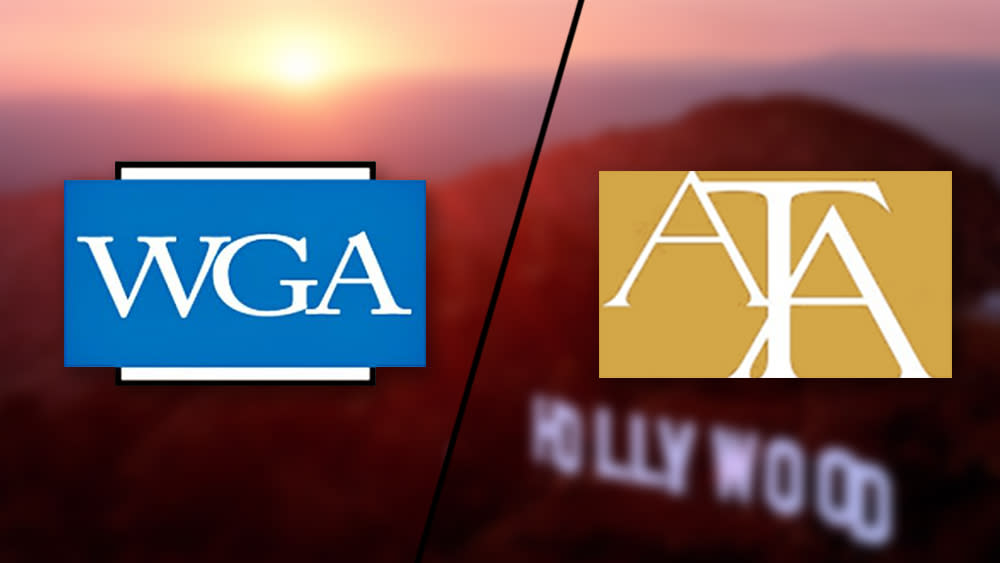WME Seeks Dismissal Of WGA’s Antitrust Lawsuit Over Packaging

Click here to read the full article.
WME has filed a motion to dismiss the WGA’s counterclaims in a federal antitrust lawsuit in which the guild is asking the court to declare that agency packaging fees are illegal.
The WGA East and West and several writers sued the Big 4 talent agencies in April, but last month the WGA withdrew its claims and refiled them in federal court. WME, CAA, UTA and ICM Partners filed their own federal antitrust suits against the guild in June, claiming the WGA is engaging in an “unlawful group boycott.”
More from Deadline
It its latest motion (read it here), WME notes that the guilds and writer Meredith Stiehm, a former WME client — referred to collectively as the “Counterclaimants” — first sued WME five months ago. “They have spent the time since dodging judicial scrutiny of their legally baseless state law claims. Now, Counterclaimants have channeled the creative talents of the Hollywood writers they represent and—out of nowhere—asserted antitrust and RICO conspiracy theories against WME. But plausibility—not creativity—is required to state a viable claim in federal court. None of the counterclaims meet this test, or even satisfy basic standing.
“First, with respect to the antitrust claims, the Supreme Court and the Ninth Circuit have squarely rejected both unions’ and union members’ antitrust standing to assert the type of conspiracy theories that Counterclaimants assert here, and Counterclaimants cannot escape the controlling force of these on-point precedents. Indeed, even if their fantastical conspiracy theories were true, their own allegations establish that any ensuing injury would have been suffered by Hollywood production studios—not the Guilds or any writer. This alone would be dispositive, but that is not all: the Ninth Circuit has also recently rejected the plausibility of the very same price-fixing conspiracy claim about talent agency packaging that Counterclaimants have tried to recast in this action.
“Second, Counterclaimants’ RICO claims likewise fail at the threshold for want of standing because RICO applies the same standing test that dooms their antitrust claims. Moreover, and independently, Counterclaimants have failed to plausibly allege that WME engaged in any conduct that would constitute the necessary predicate, criminal acts required to state a RICO claim. On the contrary, the packaging conduct by WME that Counterclaimants mischaracterize as a criminal violation of the union ‘anti-kickback’ statute is, in reality, the ubiquitous, industry-standard, commercial practice that Counterclaimants contractually authorized and benefitted from for nearly 43 years.
“Their about-face on the criminality of packaging is frivolous. WME is not aware of any prosecutor or private litigant who has ever before contended that the longstanding, industry-wide practice of packaging is a criminal violation of labor law.
“Third, Counterclaimants’ state law claims—resurrected from their abandoned state court action—should finally be put to rest. At the threshold, the Guilds (once again) lack standing because they are the wrong parties to bring these claims. For starters, their attempt to bring highly-individualized damages claims on behalf of 14,700 member-writers fails under bedrock principles of associational standing. And, the Guilds do not even possess constitutional standing to bring their Unfair Competition law (UCL) claim.
“On top of all of this, neither the Guilds nor Stiehm offer a single non-conclusory allegation about a single WME agent harming a single WME client with respect to a single WME package. There is thus no plausible claim for breach of fiduciary duty or constructive fraud, or under the UCL. All of the counterclaims against WME should be dismissed with prejudice. The standing defects cannot be cured and Counterclaimants have now tried three times to assert a cause of action against WME for engaging in packaging.”
WME is asking for a hearing on its motion to be held on October 11 in U.S. District Court in Los Angeles.
The legal battle began shortly after April 13 when the guild order all of its members to fire their agents who refuse to sign its new Code of Conduct, which bans packaging fees after one years and prohibits agency affiliations with corporately related production entities.
Sign up for Deadline's Newsletter. For the latest news, follow us on Facebook, Twitter, and Instagram.

